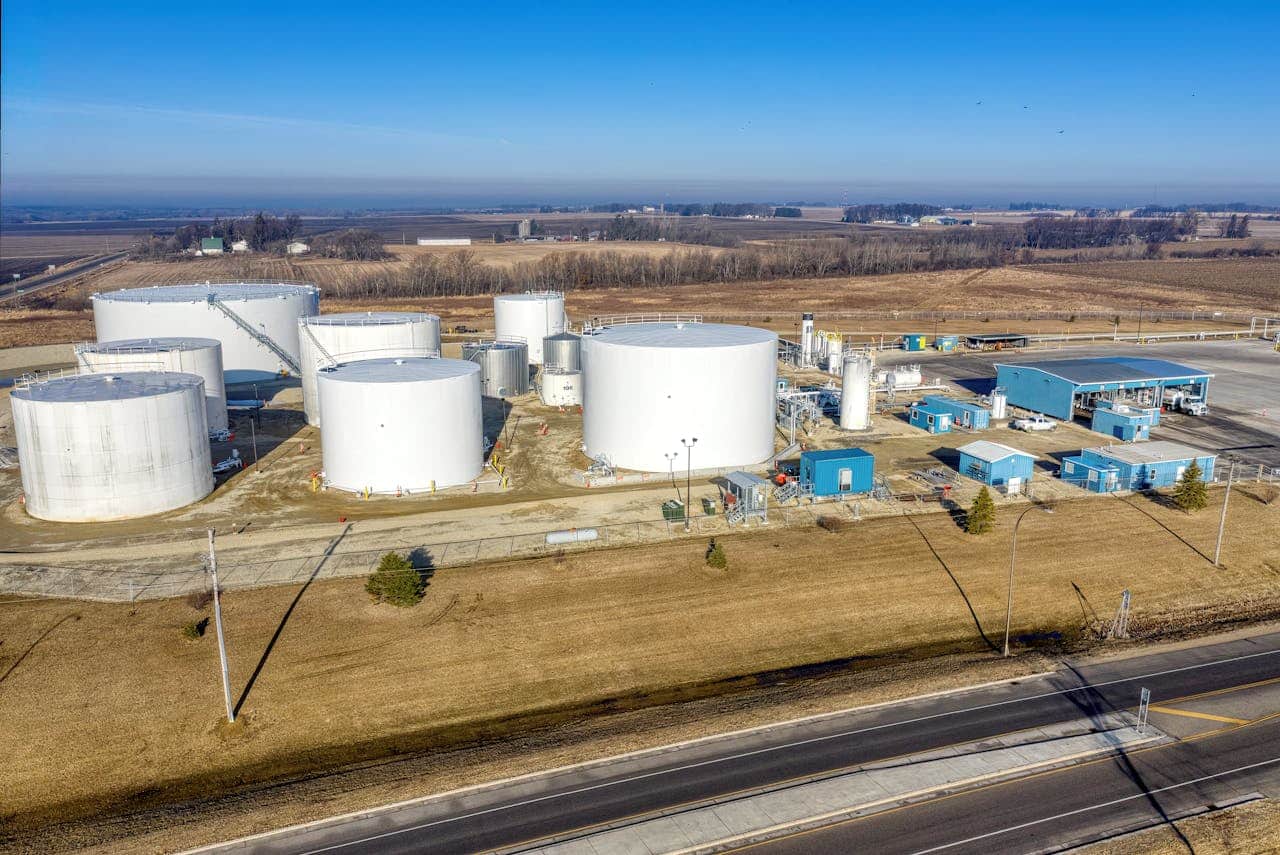Advanced Casing and Tubing Design Calculations

| Date | Format | Duration | Fees (USD) | Register |
|---|---|---|---|---|
| 08 Dec - 16 Dec, 2025 | Live Online | 7 Days | $5075 | Register → |
| Date | Venue | Duration | Fees (USD) | Register |
|---|---|---|---|---|
| 10 Nov - 14 Nov, 2025 | London | 5 Days | $6305 | Register → |
| 01 Dec - 05 Dec, 2025 | Kigali | 10 Days | $11085 | Register → |
Did You Know? In certain U.S. shale and tight oil fields, between 20% and 30% of horizontal wells experience casing failures during hydraulic fracturing. This alarming statistic underscores the critical importance of advanced casing and tubing design calculations in ensuring well integrity and optimising drilling processes in the oil and gas industry.
Course Overview
The Advanced Casing and Tubing Design Calculations course by Alpha Learning Centre is meticulously crafted to provide a comprehensive understanding of modern design techniques, complex load scenarios, and innovative technologies in well engineering. Participants will delve into advanced topics such as reliability-based design, sour design considerations, and computer-aided design applications.
This course addresses the growing need for expertise in handling complex problems associated with high-pressure, high-temperature (HPHT) environments and deepwater projects. By focusing on both theoretical knowledge and practical applications, the course ensures that attendees are well-prepared to tackle real-world challenges in casing and tubing design.
Why Select This Training Course?
Selecting this training course offers numerous advantages for professionals involved in well engineering and drilling operations. Participants will gain advanced knowledge of casing and tubing design processes, including strength theories, materials selection, and design loads. The course provides hands-on experience with state-of-the-art computer-aided design tools, enabling attendees to optimise their design processes and improve overall efficiency.
Moreover, this course addresses critical issues such as casing wear and conductor design, which are essential for maintaining well integrity throughout the lifecycle of a well. By incorporating reliability-based design principles and advanced design methods, participants will be equipped to handle complex deepwater projects and challenging service conditions.
For organisations, investing in this training enhances overall safety protocols and reduces vulnerability to well failures. By ensuring that personnel are well-trained in advanced casing and tubing design techniques, organisations not only protect their assets but also build trust within the industry they serve. This trust can lead to improved project outcomes and reduced operational risks.
Individuals who complete this course will benefit from enhanced career prospects as they become more valuable assets in their respective fields. The skills acquired through this training can lead to promotions and increased responsibilities within their organisations. Statistics reveal that companies with well-trained engineering personnel experience up to 40% fewer incidents related to casing and tubing failures. This underscores the critical importance of advanced casing and tubing design calculations in ensuring well integrity and optimising drilling processes in the oil and gas industry.
Transform your organisation’s well engineering capabilities – Register now for this critical advanced casing and tubing design training programme.
Who is This Training Course For?
This training course is ideal for:
- Drilling engineers and well engineers
- Completion engineers
- Well integrity specialists
- Production engineers
- Drilling supervisors
- Well design consultants
- Technical safety engineers
- Quality assurance specialists
- Project managers in well engineering
What Are the Training Goals?
The objectives of this training course are to enable professionals to:
- Master advanced casing design calculations
- Develop expertise in modern design software
- Understand complex load scenarios
- Apply digital twin technology in design
- Implement risk-based design approaches
- Optimise casing programs for HPHT wells
- Integrate real-time monitoring systems
- Execute advanced failure analysis
How Will This Course Be Presented?
The Advanced Casing and Tubing Design Calculations course by Alpha Learning Centre employs a comprehensive and innovative approach to ensure maximum knowledge retention and skill development. Expert-led instruction from seasoned well engineering professionals forms the core of the course, providing up-to-date insights into advanced design techniques and practical applications.
The course utilises a blend of theoretical lectures, hands-on workshops, and case study analyses, allowing participants to apply their knowledge to realistic scenarios. Advanced educational methodologies create a personalised and engaging learning journey. Hands-on skill development is emphasised through computer-aided design exercises, complex problem-solving sessions, and virtual simulations of challenging well conditions.
Collaborative learning is fostered through group projects and multi-disciplinary design exercises. Participants will have access to cutting-edge software tools and digital resources to enhance their learning experience.
Join us now and elevate your casing and tubing design expertise to new heights!
Course Syllabus
Module 1: Advanced Load Case Analysis
- Complex tri-axial stress calculations
- Combined loading scenarios evaluation
- Temperature-induced stress analysis
- Dynamic load consideration methods
- Non-uniform load distribution calculations
- Fatigue analysis integration
- Advanced safety factor determination
Module 2: HPHT Well Design Calculations
- Extreme pressure regime calculations
- Temperature effect on material properties
- Combined load cases for HPHT conditions
- Thermal expansion compensation
- Material selection criteria calculations
- Connection performance analysis
- Corrosion allowance determination
- Wear factor calculations
- Hydrogen sulfide considerations
- Advanced metallurgy requirements
Module 3: Digital Twin Integration in Design
- Real-time calculation models
- Dynamic load simulation techniques
- Predictive analytics integration
- Machine learning applications
- Automated design optimisation
- Real-time monitoring calculations
- Sensor data integration methods
- Performance prediction models
- Digital twin calibration techniques
- Uncertainty quantification methods
Module 4: Collapse Resistance Calculations
- Advanced collapse pressure analysis
- Ovality effect calculations
- External pressure profiles
- Cement pressure considerations
- Multi-string collapse analysis
- Temperature effect on collapse
- Wear impact calculations
- Time-dependent collapse factors
Module 5: Burst Load Analysis
- Internal pressure calculations
- Gas kick scenarios
- Lost circulation calculations
- Trapped pressure analysis
- Temperature effect on burst
- Multi-string burst considerations
- Formation pressure integration
- Wellhead pressure calculations
- Dynamic surge/swab effects
- Advanced safety margin determination
Module 6: Connection Performance Analysis
- Premium connection load calculations
- Make-up torque optimisation
- Seal performance evaluation
- Connection fatigue analysis
Module 7: Cementing Pressure Calculations
- Hydrostatic pressure profiles
- Dynamic pressure calculations
- Temperature effects during cementing
- Equivalent circulating density
- Cement column pressure analysis
- Formation breakdown considerations
- Trapped pressure scenarios
- Lost circulation prevention
- Centralisation force calculations
Module 8: Wear Factor Analysis
- Side force calculations
- Dogleg severity impact
- Rotating time considerations
- Wall thickness reduction
- Critical wear point identification
- Wear prediction models
- Mitigation strategy calculations
Module 9: Buckling and Tension Analysis
- Helical buckling calculations
- Sinusoidal buckling analysis
- Critical buckling force determination
- Effective tension calculations
- Combined load effects
- Temperature impact assessment
- Drag force considerations
- Hook load calculations
Module 10: Advanced Software Applications
- FEA modeling techniques
- 3D well trajectory analysis
- Real-time monitoring integration
- Machine learning implementation
- Automated design optimisation
- Risk-based calculations
- Sensitivity analysis methods
- Performance prediction models
- Digital twin calibration
- Virtual reality visualisation
- Cloud-based computation methods
Module 11: Risk-Based Design Calculations
- Probability analysis methods
- Failure mode calculations
- Risk matrix development
- Uncertainty quantification
- Monte Carlo simulations
- Sensitivity studies
- Statistical analysis techniques
- Reliability calculations
- Risk mitigation factors
Module 12: Life Cycle Load Analysis
- Production phase calculations
- Injection well considerations
- Thermal cycling effects
- Corrosion rate predictions
- Material degradation analysis
- Fatigue life calculations
- Long-term integrity assessment
- Remedial action planning
- Well abandonment loads
- Sustainability factors
Module 13: Multilateral Well Design Calculations
- Junction stress analysis
- Branch wellbore calculations
- Intersection pressure profiles
- Multi-string clearance analysis
- Lateral stability calculations
- Complex trajectory mapping
- Parent wellbore reinforcement
- Window milling force analysis
- Smart completion integration
- Load distribution modelling
Training Impact
Case studies and industry reports demonstrate the impact of advanced training programs.
Examples include:
- Improved well integrity in challenging environments
- Enhanced risk management and mitigation strategies
- Increased operational efficiency and cost-effectiveness
- Reduced incidents of casing failures and associated downtime
Join this program and transform your expertise in well engineering and casing design.








